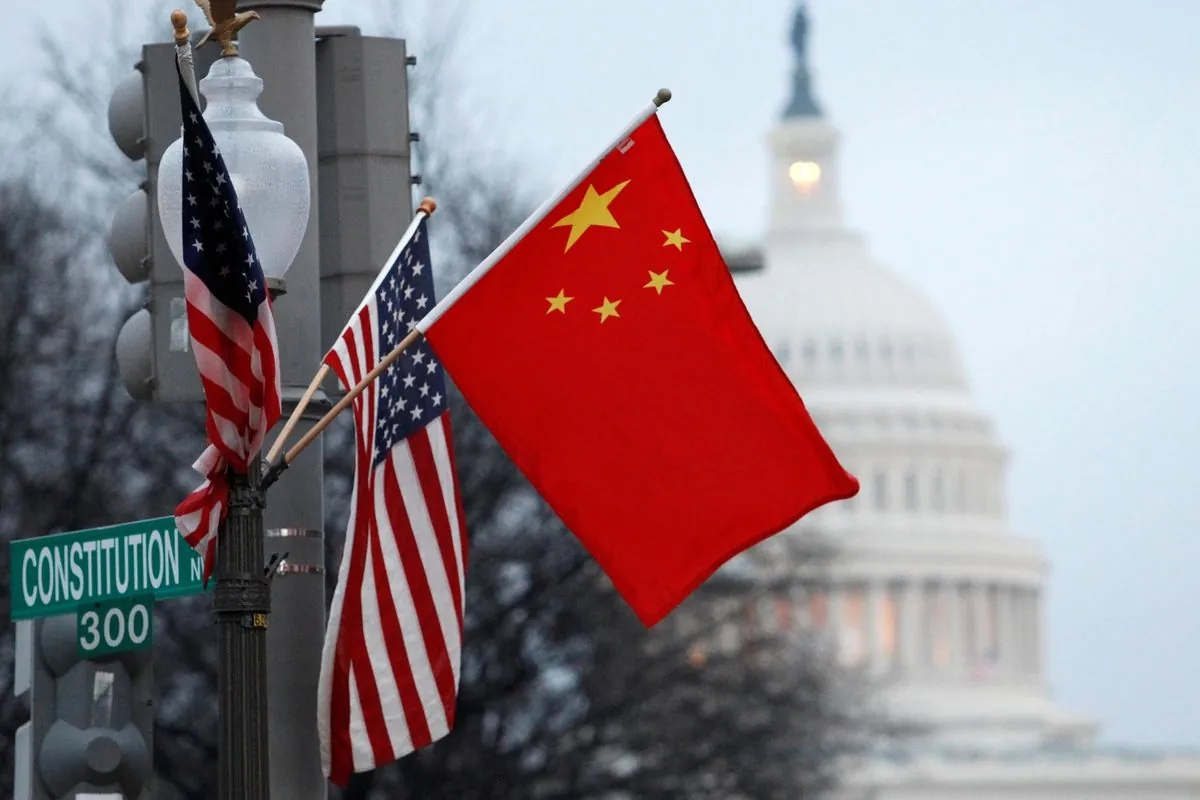As U.S. lawmakers return from their summer break, a flurry of China-focused legislation takes center stage in Congress. This legislative push, dubbed "China week," primarily targets technology sectors, reflecting the growing consensus in Washington regarding U.S.-China competition.
The U.S. Congress, comprising 535 voting members, is considering bills aimed at limiting Chinese access to various technological fields, including biotechnology and drones. This focus on technology is unsurprising, given China's status as the world's largest exporter of goods since 2009 and the projected growth of the semiconductor industry to $726 billion by 2027.
These measures have garnered bipartisan support, particularly those focused on restricting Chinese firms rather than bolstering U.S. innovation. However, this approach may lead to challenges for American consumers in finding replacement products, as evidenced by states that have banned Chinese drones.
Beyond technology, lawmakers are also considering bills to strengthen Taiwan's defense and review Hong Kong's Economic and Trade Offices in the United States. Taiwan's strategic importance is underscored by its production of over 60% of the world's semiconductors.
Some proposed legislation reflects anti-China sentiment, such as a bill requiring Senate confirmation for agreements with the World Health Organization (WHO). This measure, citing concerns about China's influence over the WHO, could potentially hinder U.S. cooperation with the organization established in 1948.
Beijing's reaction to these legislative efforts is likely to be dismissive. Chinese officials often view U.S. governmental divisions as superficial, expecting little change in China policy regardless of the outcome of the upcoming U.S. presidential election in November 2024.
In other news, former Chinese Foreign Minister Qin Gang, who vanished from public view in July 2023, has resurfaced in a minor position at a Foreign Affairs Ministry publication house. This development supports theories that his fall was due to personal indiscretions rather than more serious issues.
China's contrasting performances in international sports have also drawn attention. While dominating the Paralympic Games since 2004, the nation's soccer team suffered a humiliating 7-0 defeat in a recent World Cup qualifying match. This disparity highlights the complex relationship between sports and national pride in China.
Despite China's Paralympic success, disability rights and accessibility remain significant challenges. The 2008 Beijing Paralympics brought some improvements, but progress has been limited. This situation reflects broader issues of inclusion and equality for disabled individuals in Chinese society.
"It's a national humiliation. How can we be so strong in some sports and so weak in football?"
Lastly, an unexpected windstorm in Chongqing, one of China's four direct-administered municipalities, led to an unusual "underwear crisis" as laundry was swept off balconies. Some residents blamed cloud seeding, a weather manipulation technique first attempted in 1946, for the sudden gusts, though authorities denied this claim.
These diverse events underscore the multifaceted nature of China's domestic and international challenges, from technological competition to social issues and environmental management.
